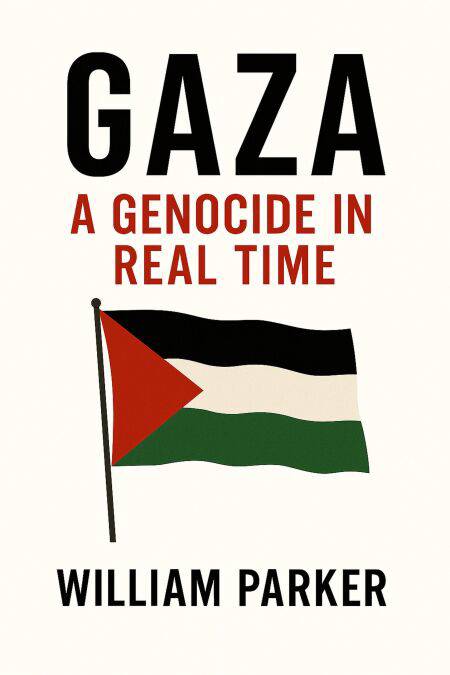
- Retrait gratuit dans votre magasin Club
- 7.000.000 titres dans notre catalogue
- Payer en toute sécurité
- Toujours un magasin près de chez vous
- Retrait gratuit dans votre magasin Club
- 7.000.0000 titres dans notre catalogue
- Payer en toute sécurité
- Toujours un magasin près de chez vous
Description
Gaza: A Genocide in Real Time is not a neutral chronicle—it is an unflinching indictment of a world that watched mass atrocity unfold live and still turned away. William Parker rips away the veil of euphemism and political spin to expose, in raw and urgent detail, how a besieged strip of land was methodically dismantled—its people starved, its hospitals destroyed, its schools obliterated—under the banner of "self-defense."
From the moment Israeli warplanes darkened Gaza's skies in October 2023, Parker traces the violence not as an isolated eruption, but as the culmination of decades of siege, displacement, and apartheid. He documents the relentless targeting of civilians: premature babies dying in powerless incubators, entire families buried in rubble, children executed by hunger when food convoys were blocked or bombed. These are not side-effects of war—they are deliberate strategies of domination.
Through meticulous research, eyewitness testimony, and survivor accounts smuggled past Israel's blackout, Parker captures the anatomy of genocide in the 21st century. The bombing of hospitals like Al-Shifa, the shelling of UN schools turned shelters, the bulldozing of cemeteries, the calculated erasure of infrastructure—each chapter builds a case that this was not a war fought against militants, but a war waged on the very possibility of Palestinian life.
But Gaza: A Genocide in Real Time is more than a catalogue of atrocities. It is a condemnation of the machinery that enables them. Parker names the Western governments that supplied the weapons, the media outlets that repeated the occupier's narrative while erasing Palestinian voices, and the international bodies that issued statements instead of sanctions. This genocide, he argues, is global—funded in Washington, excused in London, ignored in Brussels, and suffered in Gaza.
At its core, this book is also an act of tribute—to the doctors who operated without anesthesia, to the mothers who buried their children and still rose the next morning, to the children who learned to spell their names in the dust of bombed-out classrooms. It is a refusal to allow their stories to be buried with them.
Parker writes with clarity and controlled fury, refusing false balance in the face of overwhelming evidence. His prose cuts through diplomatic language to insist on moral clarity: starving a child is not "security policy," bombing a hospital is not "self-defense," and erasing a people's future is not "collateral damage."
Gaza: A Genocide in Real Time is not comfortable reading—nor should it be. It is a mirror held up to our age, showing what happens when the world's most powerful actors decide some lives are disposable. By the final page, one truth is undeniable: this is not a tragedy of the past. It is still unfolding, and silence is complicity.
Read it as testimony. Read it as evidence. Read it so that one day, no one can say they did not know.
Spécifications
Parties prenantes
- Auteur(s) :
- Editeur:
Contenu
- Langue:
- Anglais
Caractéristiques
- EAN:
- 9798231559251
- Date de parution :
- 08-08-25
- Format:
- Ebook
- Protection digitale:
- /
- Format numérique:
- ePub

Les avis
Nous publions uniquement les avis qui respectent les conditions requises. Consultez nos conditions pour les avis.






